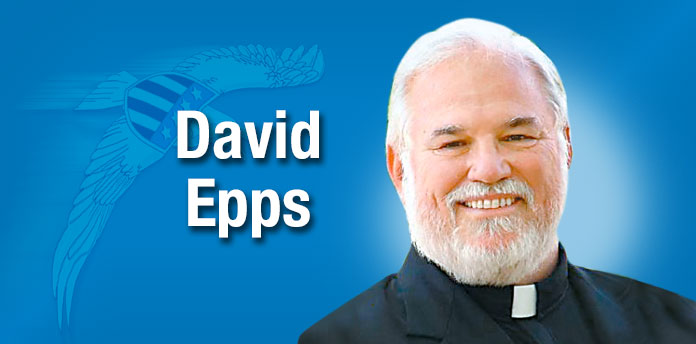The trial made news throughout the nation and the world. The defendant had been charged with the murders of two people. People chose sides depending, at least in part, upon their political orientation.
When the verdict came in, a large part of the country breathed a sigh of relief while another large part was outraged at the decision. The undercurrent in the country warned that, depending on the verdict, riots might ensue.
Politicians became involved, as did the media, proclaiming either guilt or innocence even while the trial was going on. When the trial was over, and the jury had rendered their decision, reactions were mixed with some being elated and others believing that justice had not been served. The verdict on all counts was “not guilty.”
The defendant was O. J. Simpson.
A similar scene was played out recently in Kenosha, WI. The defendant was accused, along with other crimes, of murdering two people. Again, the trial made news across the nation and the world. Again, people chose sides depending, at least in part, upon their political orientation. Again, the results from the country were mixed. Some were relieved, others outraged. It was said that, if the jury did not deliver the desired verdict, there would be rioting.
Yet again, politicians interjected themselves as the trial was ongoing and, yet again, media pundits had an opinion. Many said that justice was not served. The verdict on all counts was “not guilty.”
The defendant was Kyle Rittenhouse.
Unlike many countries in the world, the requirement for a guilty verdict in a criminal trial in the United States is that the defendant be found guilty by a jury of peers with the standard being “guilty beyond reasonable doubt.”
The presumption is that the accused is just that — accused. It is the burden of the prosecution to convince the jury that the person sitting before them is guilty. The jury, and the legal system, is to presume that the defendant starts the trial innocent.
In both the Simpson and Rittenhouse verdicts, the jury was blasted by politicians and the media (depending on their political and ideological biases) for not delivering justice. But the burden to PROVE guilt beyond a reasonable doubt — not a “shadow of a doubt — falls upon the prosecution. If the prosecution fails to convince the jury under that standard, then the person on trial who is presumed to be innocent, goes free.
The prosecution in both trials failed to meet that standard. It does not matter what the politicians say or what the media thinks. It does not matter one whit what you or I think about either verdict. The only people who matter are the judge, who ensures that the attorneys stay in line, and makes sure the jury members understand what is happening, and the jury itself.
Someone once said, “Just because the jury acquits you doesn’t mean you’re not guilty.” In the eyes of the law, yes, it does. It does not mean that nothing bad happened, but it does means that the jury didn’t buy the prosecution’s arguments and the foreman actually says, “We find the defendant not guilty.”
The system, when it works as it should, is weighted toward the defendant. The idea is that it is better for a guilty person to go free than for an innocent person to be punished. The Founding Fathers lived in a world in which power often oppressed.
In 1770, eight British soldiers and their officer were accused of murder in what was called by the colonists as the Boston Massacre. The soldiers were charged with the murders of five colonists. The soldiers claimed they acted in self-defense. Although he was a patriot and grieving the loss of a child, John Adams risked his career and reputation by defending the British soldiers.
The trial occurred in the midst of hostile colonial anger. Yet, a colonial jury found the soldiers not guilty and that they acted in self-defense. When all the facts came out, a colonial jury believed that the prosecutors had failed to prove their point.
This was the first time reasonable doubt had ever been used as a standard. It was the first time a jury was sequestered. It was a decision that would later influence the Constitution, the Bill of Rights, and the American legal system.
John Adams’ career? He was chosen as the first vice-president of the new nation and was elected as the second president of the United States.
Sometimes innocent people are found guilty and, when that happens, it is considered a travesty of justice. It is better for the guilty to go free than for the innocent to suffer unjustly. It is the way the system works in the United States and, if any of us were on trial, we would hope that we would be afforded that same presumption of innocence.
The juries in both the Simpson and Rittenhouse cases have spoken. Like it or not, these cases are over.
[David Epps is the Rector of the Cathedral of Christ the King (www.ctk.life). During the pandemic, the church is open at 10:00 a.m. on Sundays but is also live streaming at www.ctk.life. He is the bishop of the Diocese of the Mid-South (www.midsouthdiocese.life) He may contacted at [email protected].]













Leave a Comment
You must be logged in to post a comment.